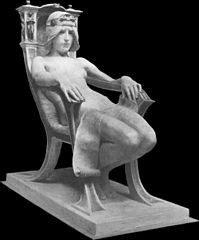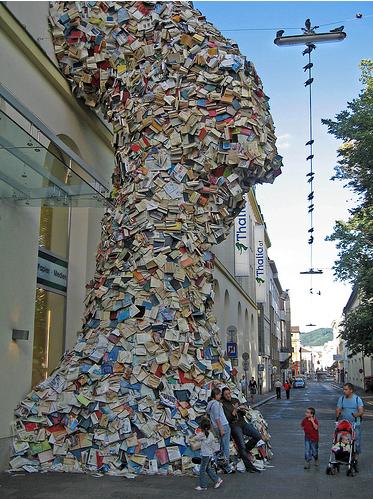It's TASE day, but I'm not gonna talk. I'm gonna rant. I'm gonna rant because I adhere to the principle that should a feminist see injustice, she must speak up.
I'm a feminist. That should not be a surprise.
I tend to follow the First Wave Feminist tradition of the 19th Century, the same tradition that spawned Bluestockings and Suffragettes. This is because my great-great grandmothers were feminists, and many of the men they associated with supported their feminist sensibilities.
My feminist tradition believes thus:
- The liberation of everyone, female and male from unjust and outdated expectations. (Frex, they support a man's freedom of choice to be a stay-at-home dad, if he should so choose.)
- A woman's right to education.
- A woman's right to a job suitable to her education, skills and life choices, and to be paid as much as a man would be.
- A woman's right to independence.
- A woman's right to develop herself in every way so she can be a strong, supportive partner in an interdependence relationship.
...And the list goes on. My brand of feminism is not the man-hating flavour so often found in Second Wave Feminism (they scare me a bit). This is important for me to note here, because not everyone realises there are different flavours of feminism. Yes, many of us like men, and wish them the best.
__________________________
Last week I had an encounter with an anti-feminist man. This man has a hatred towards his grandson's chosen wife. We're talking a bitter, red-raged, nasty, pull-out-his-hair solid going-to-hell hatred.
Why? Because she isn't a weak and submissive girl who should give up all her own traditions and beliefs and adhere strictly to his (the grandfather's).
Essentially, his anger is a long-standing temper tantrum because he's not getting his own way. (In his defence, he has had a hard couple of years with some really bad Life Events throwing a spanner in his works. That sort of thing can make the nobler choices harder.) But honestly, I think he needs to get over his anger and forgive.
The grandson's wife is a strong, smart, centered, spiritual woman I am proud to call a friend. Ever since the grandson and she met about four years ago, she has been nothing but good for him. She's encouraged and supported him in making the best choices--choices the grandfather generally supports on the whole (in theory).
But will he look at that and forgive the traits that make her who she is? No. Instead, he chooses to dwell on the negative. He even complained about how the napkins were done at the wedding. I kid you not. He could not be happy about a single thing that day, despite the fact that the Most Important Part was done perfectly. (The napkins? Honestly!)
I called him on it later, and ended up listening to a diatribe of him using my beloved religion as a thinly-veiled twisted justification on male superiority and female inferiority. (Just for the record, my religion is chock full of feminism from its inception several hundred years ago. Some time I shall have to tell you beautiful stories of strong, confident women who have changed the world.)
The scariest bit? HE HONESTLY BELIEVES THIS IS HOW IT SHOULD BE.
So, I came across him again last week, as I inevitably do, being good friends with the newest generation of this family. He was backbiting his grandson's chosen wife, saying how he wanted to destroy her, because he's dead set that she's going to "completely ruin" his grandson.
Nothing is further than the truth. All you have to do is look into the grandson's eyes to realise he's a full-grown man who is very content with his choice of bride. She's brought out the best in him, I opine.
Anyhow, like any good feminist, I spoke up at this rather unfair treatment of a woman who was not currently there to defend herself.
And boy, did I get an earful, not only of her crimes, but of MINE. He's fully convinced that I'm in league with the Anti-Christ, how my beliefs go against the Church, that I'm out to destroy every man I come across and a whole lot of other blatant untruths.
Will I ever be able to convince him to change his views? No, no matter how much I wish I could.
But will I stop speaking up? Never.
__________________
Any time I have an experience that makes me consciously think about my feminist values, it makes me reflect on many things, including my portrayal of women and men in my fiction.
I write fantasy, and I write historical. In my fantasy novels I tend to stay away from gender inequality (and racial inequality, now that I think about it). When people are at odds, it is because of who the individuals are, and not any particular stereotypes (that I am aware of. I'm not a hundred percent sure of this, because prejudice is often unconscious).
I write a lot of Regency Romance. Was there gender inequality during the Regency? Boy, was there! It was so bad, First Wave Feminism couldn't help but be born.
A lot of that inequality creates some good Conflict in a story (such as the title and inheritance of a man goes to another male heir, and not to his daughters, should he have no son--Pride and Prejudice, anyone?). Yet when it comes to the individual character development and interrelationship between Our Hero and Our Heroine, I find I must steer well clear of the accepted gender roles of the day.
I still must keep some elements (such as a father opening his daughter's mail) for realistic world-building. But otherwise, my characters interact as if they were from the Twenty-First Century.
And nasty, angry, prideful characters who do their best to destroy the happiness of Our Hero or Our Heroine, always get their comeuppance.
__________________
Her Grace feels better after having got that off her chest. She tries her best not to harbour negative feelings, as they are destructive. Meanwhile, here is a picture of one of her favouritest feminists:
 |
| Yes, this is Patrick Stewart. |


















